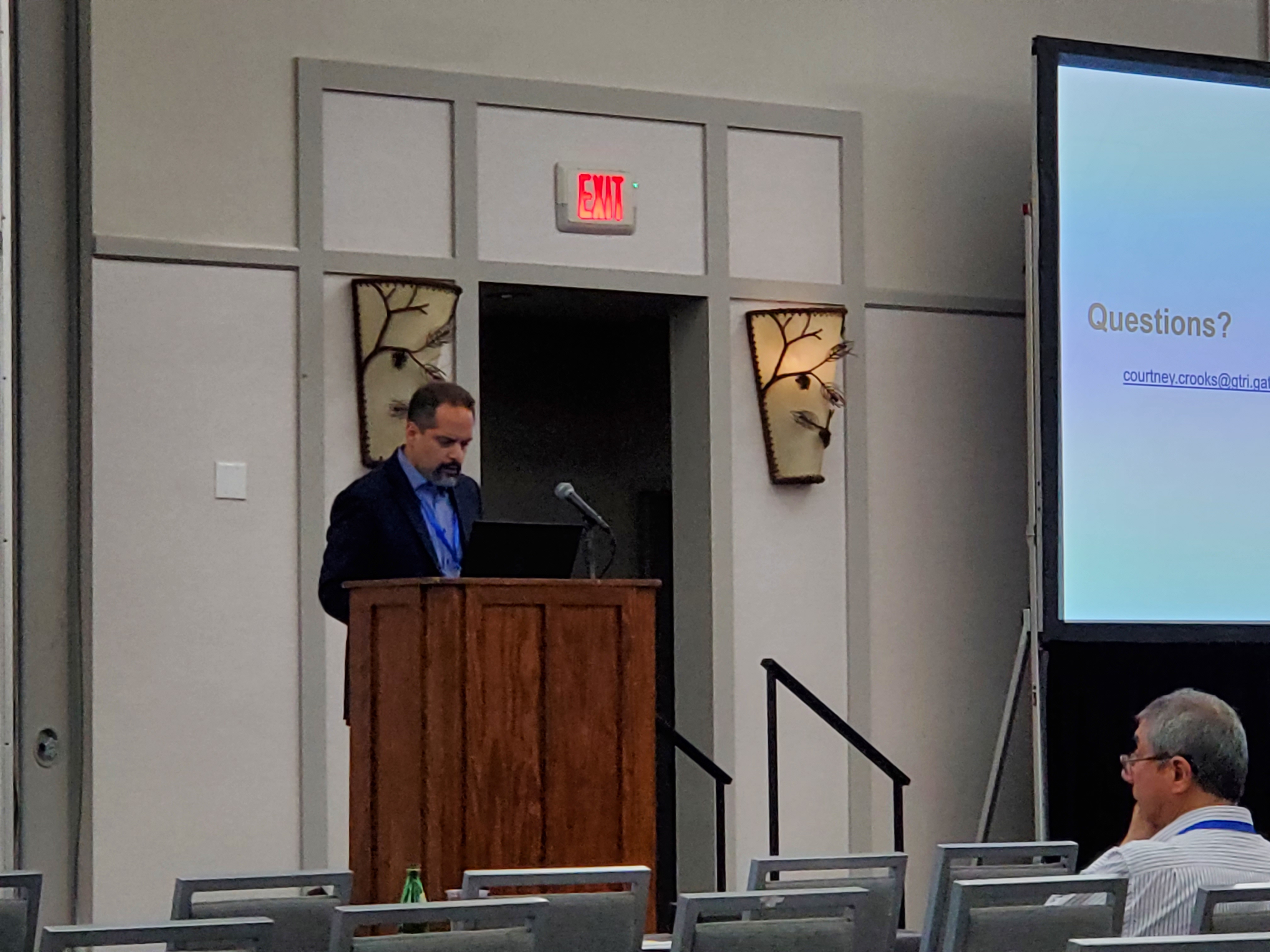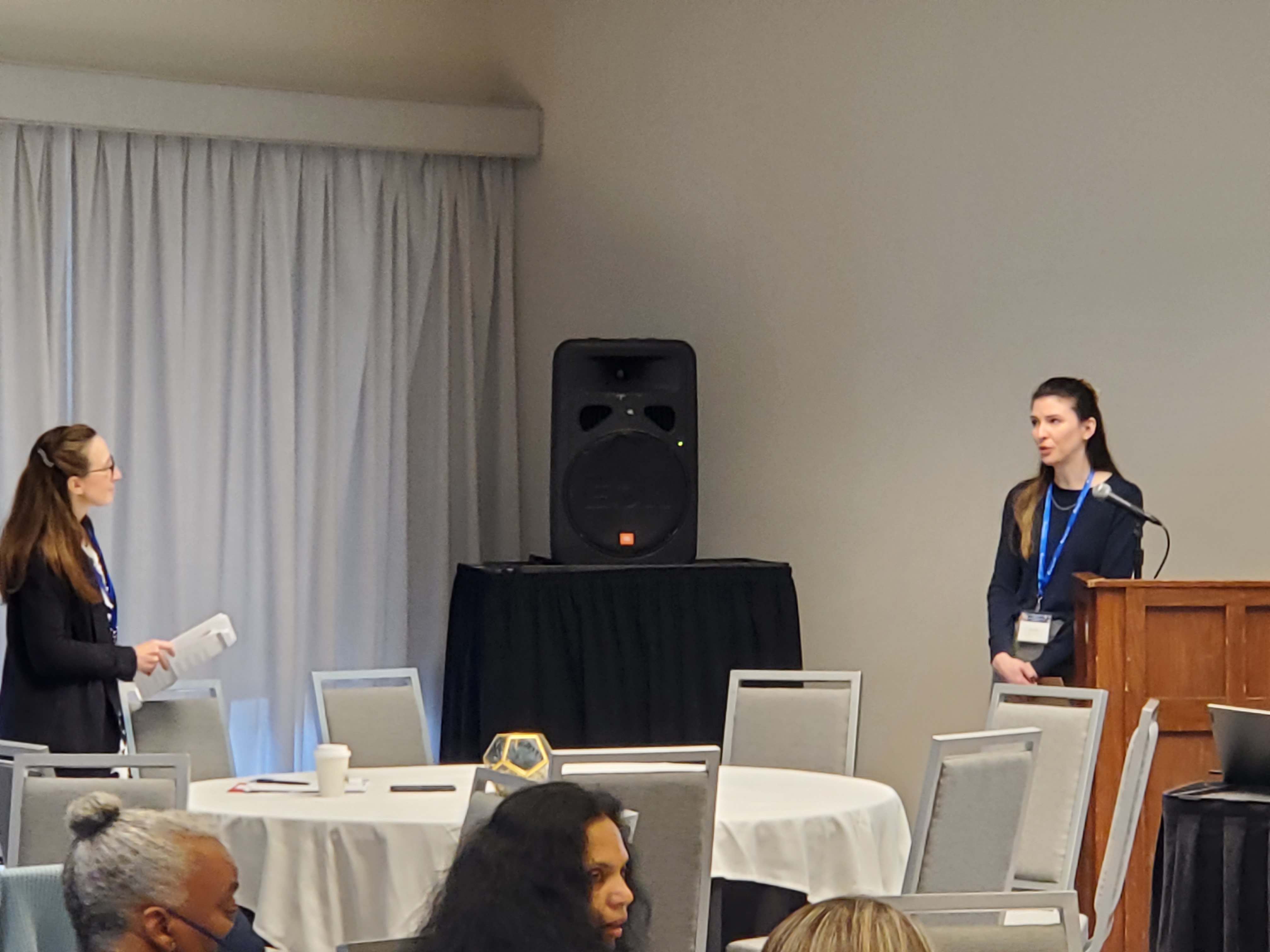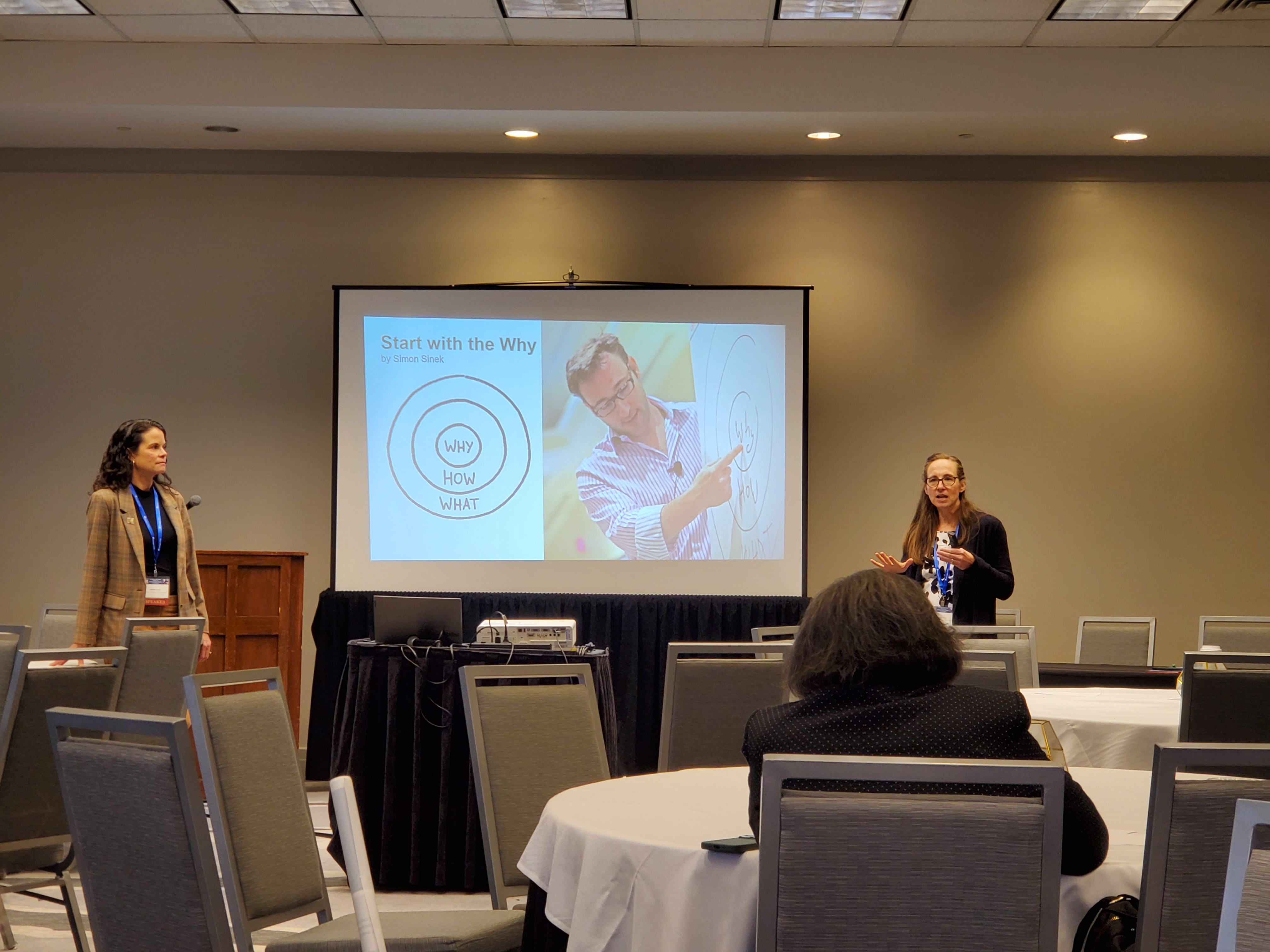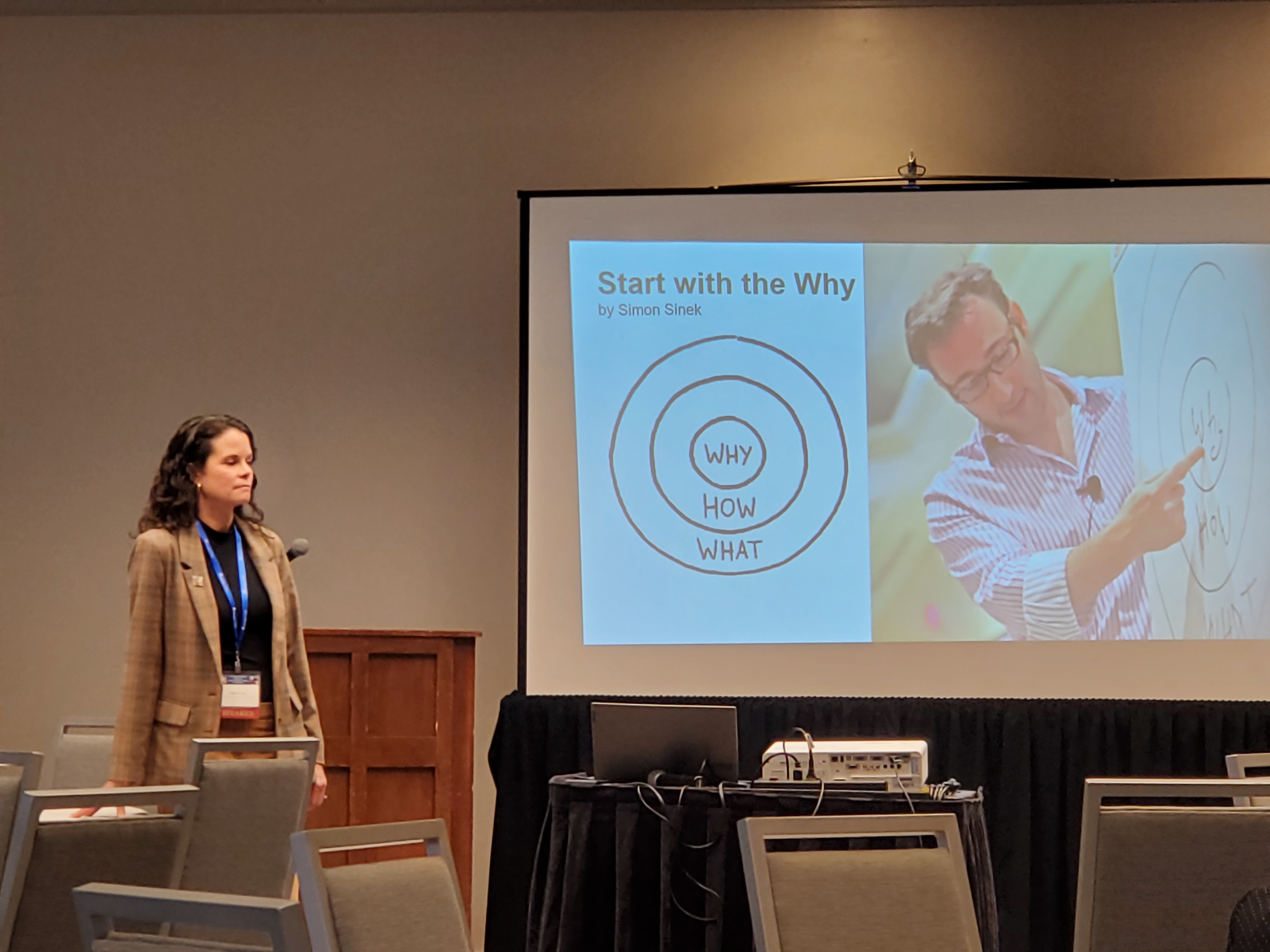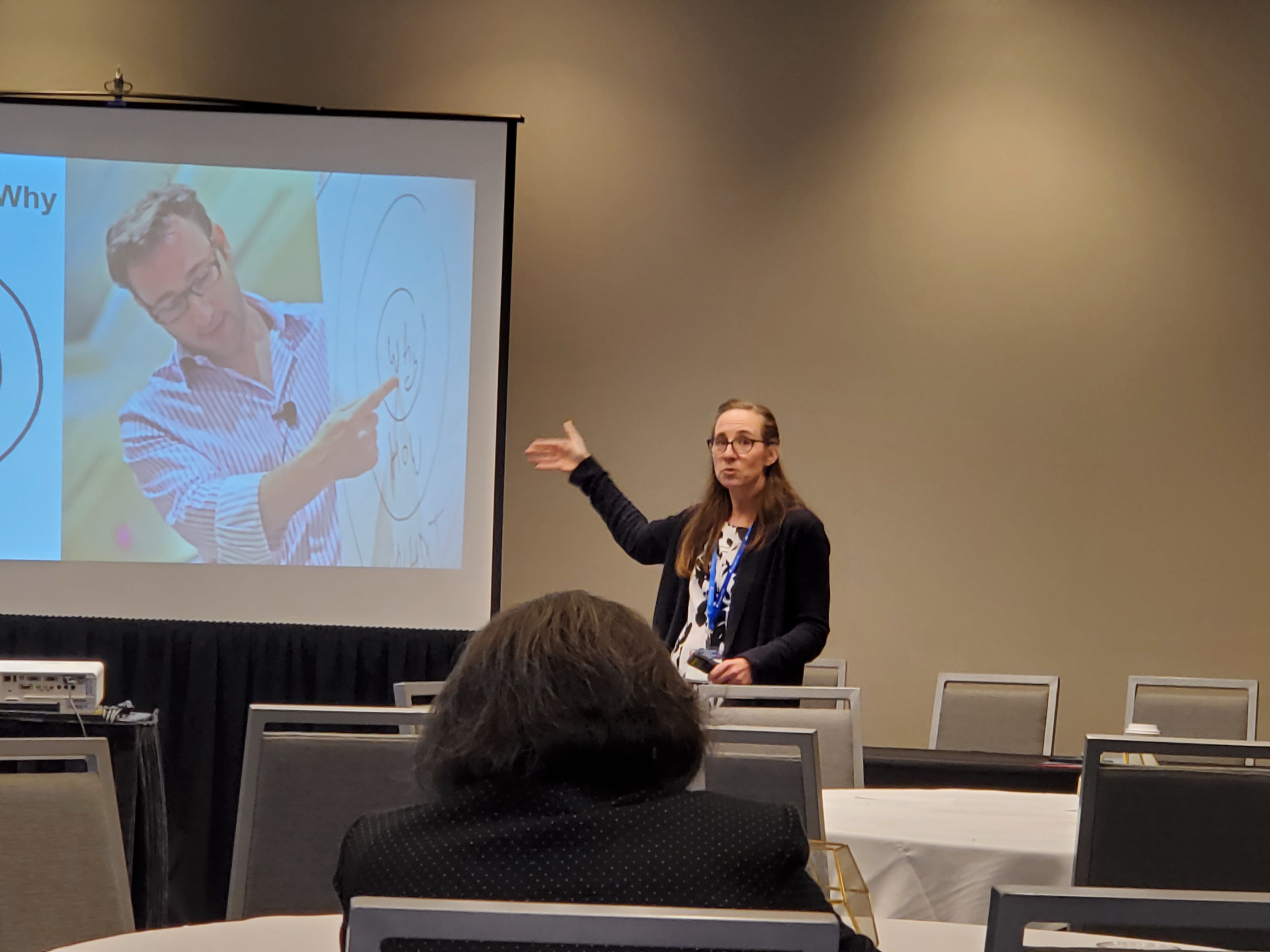Written by Tyren Lucas - March 8, 2024
The
Center for Clinical and Translational Science (
CCTS) takes immense pride in forging remarkable collaborations and advancing scientific innovation throughout the CTSA consortium. From February 28 to March 1, 2024, the
Southeast Regional Clinical and Translational Science Conference congregated in Pine Mountain Georgia, hosted by the Georgia CTSA, and co-sponsored by the CCTS. The conference brought together researchers, staff, and trainees from across the southeast region to share their research and create meaningful collaborative relationships. The conference offered a robust selection of informative sessions on topics such as health equity, drug discovery and development, cancer research, mental health, and maternal/pre-adult health and nutrition. Everyone at the conference was treated to an enlightening presentation given by this year’s keynote speaker, USDA Director of Minority Health and Health Equity, Dr. Christine Lee. Dr. Lee gave tremendous insight into the challenges of advancing health equity and creating avenues to build trust in communities that will facilitate key initiatives to improve health in underserved communities.
The CCTS presence was felt throughout the entirety of the conference with sessions moderated by CCTS leaders Drs. Robert Kimberly, Orlando Gutierrez, and Jennifer Croker. A highly informative and interactive workshop on scientific communication was hosted by Christina Crowe, MBA, UAB Director of Communications, and Dr. Jennifer Croker, CCTS Senior Administrative Director. One of the brightest spotlights captured at the conference was an incredible presentation “
Estimating Clinical Severity of COVID-19 in the United States Population from Predicted CD8+ T cell Epitope Diversity” given by Grace Kim, who is a current CCTS TL1 Trainee and MD/PhD student at Louisiana State University Health Sciences Center. The CCTS was honored to be a part of such an incredible collaborative opportunity and continues to build stronger synergistic relationships across the CTSA ecosystem to forge ahead efforts that will ameliorate health for the community at large.
About the Center for Clinical and Translational Science (CCTS): To speed the translation of research into improved health, the Center for Clinical and Translational Science (CCTS) is committed to increasing research capacity, accelerating research processes, engaging stakeholders in trusting, productive teams, developing and supporting excellence in the research workforce and providing creative, innovative approaches to major health and health care delivery challenges. The vision of the CCTS is to reduce health disparities and diseases disproportionately represented within the Deep South as we accelerate discovery to improve health. The Center has assembled a robust Partner Network – spanning Alabama, Mississippi, and Louisiana – to ensure that research and training efforts serve the communities in our region while maximizing collaborative synergies in translational research to advance fundamental and clinical discovery through application.
About the Clinical and Translational Science Award (CTSA) Program: The CCTS and its Partner Network represent one of nearly 60 Clinical and Translational Science Awards (CTSA) funded by the National Institutes of Health’s National Center for Advancing Translational Sciences (NCATS). The national CTSA Consortium comes together by a shared mission to strengthen the clinical and translational research enterprise “to get more treatments to more patients more quickly.” The CTSA Consortium is committed to developing a diverse and knowledgeable translational science workforce; engaging patients and communities in every phase of the translational process; promoting the integration of priority and underserved populations in translational research across the human lifespan; innovating processes to increase the quality and efficiency of translational research, particularly of multisite trials; and advancing the use of cutting-edge informatics.

